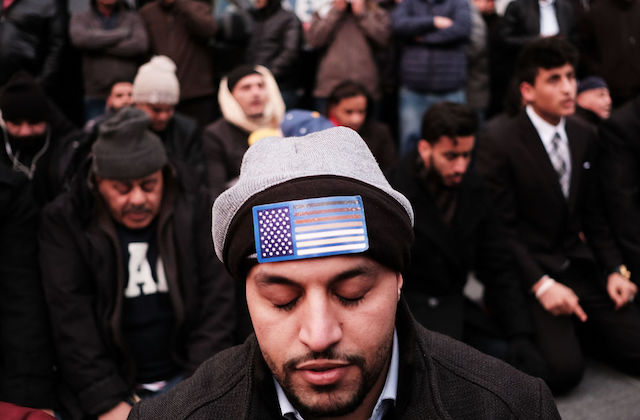Today (September 11) marks 16 years since terrorists hijacked four airplanes and flew them into the World Trade Center in New York City, the Pentagon in Arlington, Virginia, and a field in Shanksville, Pennsylvania, killing 2,977 people.
In an essay published today by The Nation, South Asian Americans Leading Together (SAALT) executive director Suman Raghunathan writes that while for many, the attacks on 9/11 sparked a new appreciation of America, that for others “it took on a flawed and dangerous form” that has been intensified 16 years later.
From the essay, titled “Too Many Americans Think Patriotism Means Racism and Xenophobia”:
Violence against South Asian, Muslim, Sikh, Hindu and Arab Americans skyrocketed in the weeks and months after 9/11. New government policies painted our communities with suspicion and guilt. The notion that patriotism and racism are synonymous was used against us after 9/11, and the horror has lasted 16 years, flowing and ebbing under Presidents Bush and Obama. That notion has only increased in fury under the Trump administration.
Raghunathan goes on to detail her reality immediately following the attacks, as well as the state-sanctioned actions that targeted people who were subsequently profiled as terrorists, writing:
In the days that followed I feared for my safety for the first time in my life: not from planes nose-diving from the sky, but from assaults on the subway or on the street. These fears were not misplaced. The first shots fired after the attacks were on September 15 in Mesa, Arizona, when Balbir Singh Sodhi, a Sikh gas station owner, was killed by Frank Silva Roque, a racist gunman who wanted to “go out and shoot some towel-heads.” During his arrest Roque screamed, “I am a patriot! I stand for America all the way!” This is how he pledged allegiance to our flag.
Our communities experienced many ensuing acts of hate. In the first week after 9/11, 645 bias incidents nationwide were reported by media organizations. In the months that followed, our houses of worship were surveilled by the NYPD and other law-enforcement agencies, our rights were violated and our dignity stripped at airports, and our children were bullied in school and harassed on the internet. Government policies such as the Patriot Act and the National Security Entry-Exit Registration System were implemented, the latter of which opened cases against 83,000 Muslims entering or living in the United States. The result of this vast ethnic profiling? Zero terrorism-related convictions.
She also details the uptick in hate crimes against Muslims and people perceived to be Muslims in the months since President Donald Trump was elected, then talks about what patriotism means to her.
Our communities know that the highest form of patriotism is dissent: We have lived it for 16 years. We’ve spoken out when we’ve seen injustice, and we’ve crowded airports to protest an unlawful “Muslim ban.” We’ve stood united with those from all faiths, colors and backgrounds, against racism and division in Charlottesville, Boston, Berkeley and beyond. We’ve stared down ACT for America—the nation’s largest anti-Muslim hate group—and forced them to cancel nationwide Islamophobic rallies originally scheduled for September 9.
The toxic patriotism that hate groups have practiced for 16 years has brought our diverse communities together, anchored in a patriotism of love, not fear. This September 11, I will remember that this is the true patriotism—working with our communities to protect each other, and in doing so, to form a more perfect union.
Read the full essay here.
